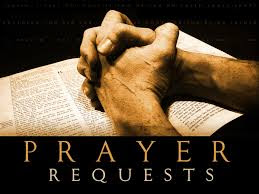Q: My Christian friends think Pentecost was celebrated only after the giving of the Spirit described in Acts 2. I explained what little I knew of Shavu’ot, but I didn’t really know what went into the actual observance of it. Rabbi [K] made mention of it in his Shabbat message, but that was after it had passed. Why didn’t we celebrate Shavu’ot as a congregation? Isn’t it supposed to be a significant feast?
A: Shavuot is one of the eight major celebrations of Leviticus 23. Shabbat, Passover, Chag ha Matzah (Feast of Unleavened Bread), Yom ha Bikkurim (Firstfruits), Shavuot, Yom Teruah (Rosh Hashannah), Yom Kippur, and Sukkot. Leviticus 23:16-22 gives us the basis for the celebration. It was observed by the nation of Israel since that time, though the manner in which it was celebrated changed with the destruction of the Temple in 70 C.E. The Biblical observance called for a wave offering of bread, along with burnt offerings involving lambs, bulls, rams and goats. And it was to be a Sabbath.
Modern observance is very different. First, there is disagreement over when Shavuot should be celebrated. For the other celebrations, a date is given. “In the seventh month, on the first day of the month,” or “On the fourteenth day of the first month at twilight.” Shavuot is dependent upon counting the days from “the day after the Sabbath.” This has been subject to interpretation. Does the “Sabbath” that is mentioned refer to the weekly Sabbath that falls during the week of the Feast of Unleavened Bread, or does it refer to the first day of Passover, which is a Sabbath as well? The Pharisees interpreted this to be the first day of Passover Sabbath. The Sadducees disagreed, believing that the count should start on the day after the weekly Shabbat.
If you read the rest of the passage, one was to count seventh Sabbaths from which ever day you start from. The day after the seventh Sabbath was to be the day of Shavuot. Yet, the Scripture also instructs to count 50 days to the day after the seventh Sabbath. The only way you can count seven Sabbaths in 50 days and end up on the day after the Sabbath is if you start on a Sunday. Therefore, it is my belief, and the practice of our congregation, that the Sabbath mentioned in Leviticus 23:15 is a weekly Sabbath, that the count begins on a Sunday, and seven Sabbaths later, the day after the seventh Sabbath, the 50th day, will then always be on a Sunday. Please note that this is a departure from what the majority of the Jewish community today believes and celebrates. However, I will place my trust in the Word of God, which I believe is clear in this matter.
Regardless of which day it is celebrated on, there are certain primary observances. Tradition holds that Shavuot was the day that Moses received the Torah on Sinai. Therefore, Shavuot is punctuated by a complete reading of the Torah. In many synagogues, the reading will begin erev Shavuot, and continue through the night and all the next day until the entire Torah has been read. This is a daunting task, but ultimately worthwhile, as the reading of Scripture is never a bad thing.
Additionally, it is a holiday when only dairy products are consumed, like milk and cheese, blintzes and such. The rabbis said that the Torah was likened to milk in Song of Solomon 4:11. Therefore, since this was recognized as the day that the Torah was given, it is honored by the eating of dairy.
Leviticus 23:22, the final verse dealing with this holiday, instructs that when the fields are reaped, the corners are left untouched. The original observance of this festival was as a celebration of the first of the barley harvest. Thus, all of the agricultural references, including the one about the gleaning of the fields. If you will remember, the story of Ruth includes a great deal about the corners of the field. Therefore, there is a connection between the book of Ruth and the observance of Shavuot. So Ruth is also read during this festival.
Shavuot is also one of the three pilgrimage festivals, the chagim regalim. That means that when it was celebrated, all men were called to travel to Jerusalem to observe it. The other two are Passover and Sukkot. Acts 2:5 indicate that there were religious Jews from all over the place in Jerusalem at that time. That was because they were there for Shavuot, in observance of the command to go to Jerusalem for the festival. Clearly, Christians didn’t celebrate it before that time, because there really weren’t “Christians” then. That didn’t happen until decades later. But all of the Jewish believers were celebrating, and still are, this feast of Shavuot.
Today, we have the added benefit of the gift that was given in Jerusalem that Shavuot. And the giving of the Spirit is certainly a major focus in our congregation. And in an ideal world, we would have gotten together on “Pentecost Sunday” and read through the Torah, read the book of Ruth, and ate a lot of dairy food. However, it is not an ideal world. Last year, we had the ability to do that. We got together, a small group of us, and read through the Torah, at least as much of it as we could. (As I said, a daunting task.) This year, we weren’t able to do that. It is my prayer that by the time Shavuot rolls around next year, we will be better positioned to be able to observe this important festival, giving it the honor that it is due.

